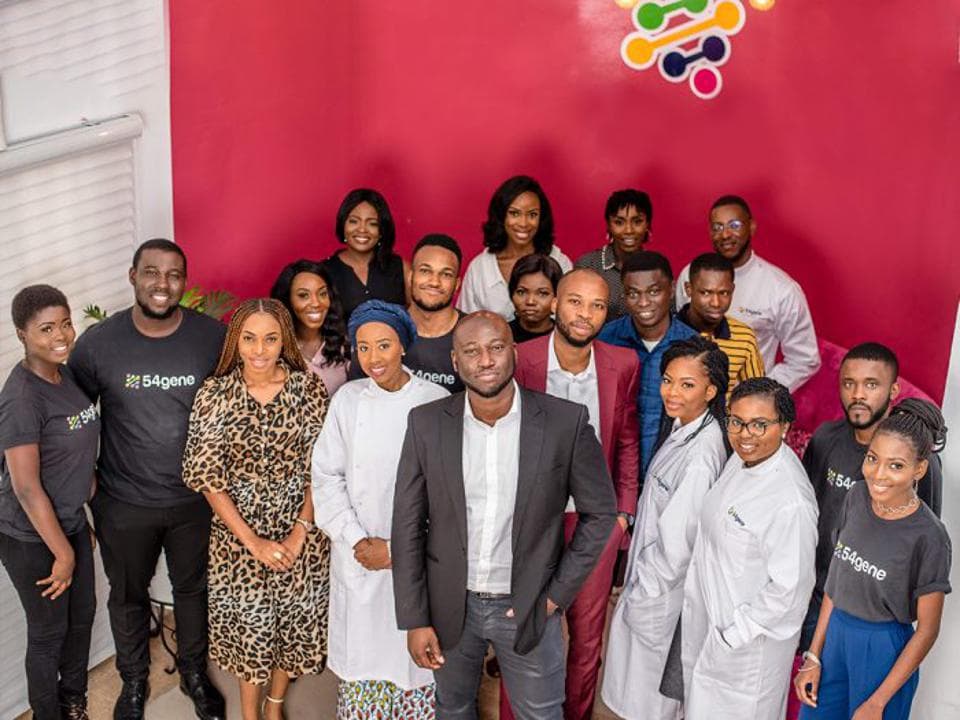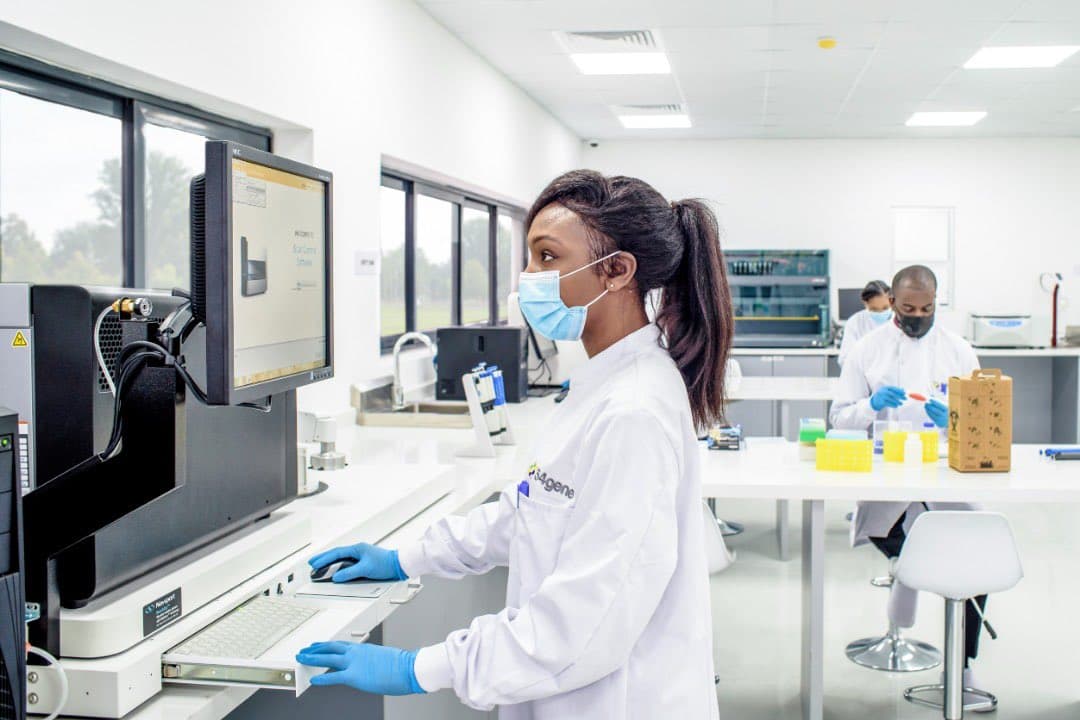Nigeria-based genetic startup, 54Gene, partners with a US-firm, Illumina.
They both plan to launch a genomics facility in Lagos State.
The partnership comes barely five months after the startup received a $15 million seed funding.
It also marks another of 54Gene’s most significant milestones since launch.
The Research and Development (R&D) company has amassed close to $20 million in funding over the last 20 months.

54Gene: Lab Scientists
In the latest development, the startup wants to leverage on the new partnership to enhance its Lagos operations.
This also means the construction of an ultra-modern health-based facility.
According to a reliable source, the new facility will be built to match the global standard.
It will be equipped with a “suite of Illumina’s cutting-edge sequencing and high-density microarray technology platforms.”
Also, with this tech-provision, 54Gene can generate genetic information for health research and drug development.
Why 54Gene? Why Africa?
Launched in January 2019, the health-focused startup set out as an R&D company.
It generates self-provided human genetic data, mainly from the African population, its primary market.
With the help of these data, the startup develops medical products for Africans and the world beyond.

TheSpiritedHub: 54Gene Laboratory
54Gene may have been chosen for many reasons, including accuracy and efficacy in data management.
Also, being located in Africa is another major factor that may have been considered by Illumina.
Compared to other regions, Africa is populated with vast genetic diversity.
ALSO READ: Post COVID-19: Bolt to Commence Food Delivery in Kenya
This, according to various reports, is because Africans possess the oldest human genome.
Despite the genetic wealth, it is revealed that less than 3% of the global genome analyses are from Africa.
With much potential yet to be explored, Africa could be the best investment destination in that regard.
Hence, it is no brainer that the US-firm chose to deal with its latest partner.
Potential benefits
The provision of a local facility will cut-off the need to send samples acquired overseas.
Transporting genetic samples abroad for analysis is undoubtedly a common practice among local health laboratories.
This is one of the primary concerns that this partnership will address moving forward.
Also, the availability of this facility locally would mean a faster turn-around time and reduced costing.
Not just that, the foreign partner has committed its expertise to the ongoing development.
Illumina will be training local scientists on how to use its sequencing and microarray equipment effectively.
Also, the US-firm will aid the career growth of 54Gene’s team of molecular scientists/experts.

Techcabal: 54Gene founder and CEO, Dr. Abasi Ene-Obong
Speaking in excitement, 54Gene founder and CEO, Dr. Abasi Ene-Obong, commended its partner’s effort in building “capacity and infrastructure” in the region.
Dr. Abasi emphasized the potentials that Illumina’s cutting-edge technology will afford the team.
According to him, it will speedily push the company’s “research and diagnostic capabilities.”
Overall, the partnership affords 54Gene a better opportunity to achieve its mission of “equalizing precision medicine.”
A peep into the Nigeria Health Laboratory system
There is an increasing awareness of health technology in Nigeria.
Over the years, people have attributed some biological disability to religious or fetish beliefs.
On the contrary, a lot of these disabilities can be corrected using the right approach.
Speaking of which, the majority of these approaches are tech-based and highly sophisticated.
As awareness of the possibilities of health technologies gradually set in.
The need for advanced laboratories is also on the rise.
ALSO READ: Master Data Management Market Value to Reach $27.9B by 2025
Regardless, only a few laboratories are equipped with some of these advanced technologies.
Usually, Health laboratories in Nigeria only collect genetic samples.
And take them abroad for analysis.
Take, for instance. To date. No laboratory in Nigeria runs a full DNA test.
It is, however, not only limited to DNA tests alone.
There are quite a couple of tests that are not carried out in the local laboratories.
SYNLAB, Clina Lancet Laboratories, and their likes still take their genetic samples abroad.
And yes! It is a common practice across the nation.
Now, 54Gene is about to set the pace alongside Illumina.
Just maybe in the future, more laboratories will jump on similar opportunities.
What do you think of Nigeria’s increasing adoption of health technology?
Kindly share your thoughts with us in the comments section below.















 and then
and then